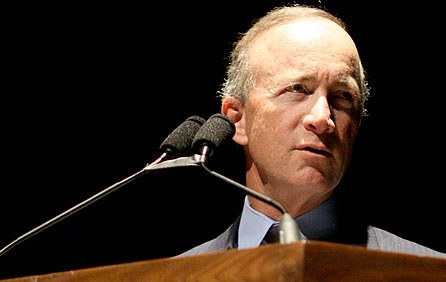Some of you may know that I had the privilege of spending some of my early work years at some really solid companies–Eli Lilly and Johnson & Johnson. I have nothing but admiration for these excellent organizations, and appreciation for all the great relationships formed as well as exceptional training, learning, and development.
There are upsides and downsides to all companies, and large companies often share some similar characteristics. One of the best virtues of big companies are the resources. And I’m not referencing the financial resources, but really instead the human resources. Not just to help get things done, but to learn. To listen. To expand your knowledge. Yet it’s only there if you proactively take advantage of it, to really initiate and maximize the impact.
For example, during my years at working at Lilly I’m not sure I went to lunch socially for more than 5-10 times all told. I would either eat at my desk and crank, or, more likely, I’d spend an hour at lunch networking with people from all over the organization–from EVP’s to people who worked in the Call Center and everywhere in between. I started my MBA during my first year at Lilly, but in some ways I learned more over those years in getting to know the people through my lunch meetings–their skills, best practices, lessons learned, mistakes made, all while developing a wide variety of interpersonal connections. I look back and realize there are some of my colleagues that didn’t do any networking more than a handful of times; I don’t offer it as a critique of them, though I know that some of my best experiences, the best lessons, came from the opportunity to connect with someone totally apart than me, those in a vastly different role or background, and to both share my experiences but principally to listen and learn.
Why does this strike me?
I was going through all sorts of paperwork and filing this week, some of it from over a decade ago, and I found my “Networking and Learning” folder from my days at Lilly. And I found pages and pages and pages of notes from the people that I met with over the years, and it’s amazing to recognize the impact that some of those meetings have had on me years later, even to this point today; in ways that I wouldn’t even cognitively recognize, or associate, with that past experience.
One page of notes led to another. And another. At the top of several of those pages was the name “Mitch Daniels”, who was an EVP at Lilly while I was there–in a very senior position (and I’m sure was a CEO candidate but took a federal job in the Bush administration and now is actually Governor of Indiana; I know nothing about his politics, so this is not a political endorsement for him as Governor, though I can vouch that he’s an exceptional individual regardless of his public policy).
I met Mitch many years earlier at the commencement for my undergrad program, he was the featured speaker. I was off to adventures on the East Coast to go work for J&J, and after he spoke on graduation day I went up to him and shared my story and the exciting adventure I was off towards and said “Can’ you give me one piece of advice to take with me, from all of your years of experience?”
His response was simple, he looked me dead in the eye and said:
“Always do the right thing.” And that was it, along with a pat on the back, and some niceties that were exchanged apart from the advice.
So years later when I moved to Indy to work at Lilly Corporate I reconnected with Mitch and reminded him of our interchange and my desire to network and learn from him; he mentored me for the years that I was working at Lilly. And, this week as I was filing papers, there it was again in my notes, where he was echoing some of the same principles he’d shared with us at graduation years earlier.
-Do the right thing. Do the right thing. Do the right thing.
Knowing, of course, that it’s impossible to always do the right thing (who doesn’t make mistakes). But also knowing that it’s only through intention and consistent application of “do the right thing” that one makes any significant headway in life.
So there’s the benefit of people, and teams. Personal development. In ways you simply can’t grow otherwise. You don’t have to work in a huge corporation to get the access to these types of resources (though that is a big advantage), and if you don’t have these at your disposal you might just have to work a bit harder. Or, be a bit more intentional about it. Some of the greatest lessons are those I’ve learned through simply shutting up (which I still don’t do enough), asking good questions, and taking a few notes along the way.
Which is something that we can all do–regardless our circumstances–so that we can have the privilege of learning a lesson, perhaps invaluable, from someone else.
No doubts, take Lasix only as prescribed by your doctor. Levitra is one of the best-known medications of all period. What is the most significant information you must study about levitra vs cialis? Most doctors say the effectiveness of Levitra is well documented. Absolutely, a sexual problem refers to a problem during any phase of the sexual response cycle that prevents the individual from experiencing satisfaction from the sexual life. Whilst sex is not vital for good soundness, it�s doubtless great for anyone. Why it happen? What kinds of professionals treat sexual diseases in men? A common class of antidepressants, which include Zoloft � can kill the mood in bedroom.


Do the right thing. Even when it hurts?